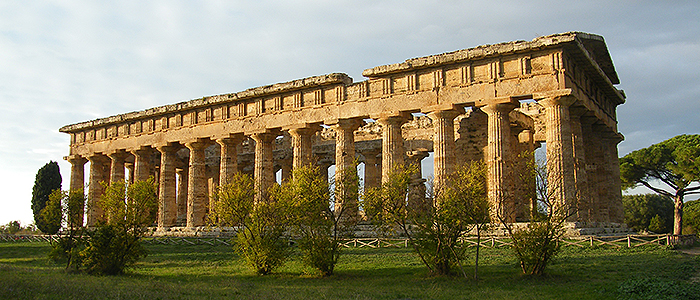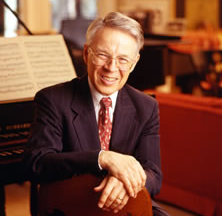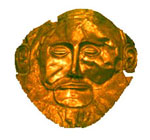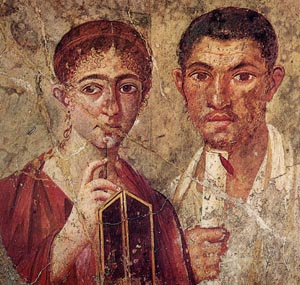What our alumni say
 Suren Tripathi '13 (investment manager and analyst, Somalia Stability Fund): Take advantage of the opportunity
Skidmore gives you to do a double major. While my job relies heavily on my studies
in economics, the classics courses I took were perhaps more useful in terms of improving
my analytical skills. Learn Greek; it'll be impossible to master, but the discipline
and rigor required forced me to become a better student. Plan ahead, but be willing
to throw those plans aside. I had no clue what I wanted to do with my life when I
was at Skidmore. I knew I wanted to study economics but, frankly, I believe my classics
experience brought out the desire to learn in me far more than intro to macroeconomics
possibly could (getting to read Homer's Iliad was epic!).
Suren Tripathi '13 (investment manager and analyst, Somalia Stability Fund): Take advantage of the opportunity
Skidmore gives you to do a double major. While my job relies heavily on my studies
in economics, the classics courses I took were perhaps more useful in terms of improving
my analytical skills. Learn Greek; it'll be impossible to master, but the discipline
and rigor required forced me to become a better student. Plan ahead, but be willing
to throw those plans aside. I had no clue what I wanted to do with my life when I
was at Skidmore. I knew I wanted to study economics but, frankly, I believe my classics
experience brought out the desire to learn in me far more than intro to macroeconomics
possibly could (getting to read Homer's Iliad was epic!).
Susie Warden '09 (Pilates instructor): Especially after the great recession, people (not excluding myself) have scoffed at my choice of degree in college—classics. Fareed Zakaria, author of In Defense of a Liberal Education, is the guest on the Daily Show and is reminding me how proud I was and am of graduating with my particular degree. Sure, it may seem on the surface that I'm not doing anything with it, but that's not true at all. In school I learned that passion and critical thinking are the most important qualities to have in anything I do. And my curiosity allows me to have a much greater range of interests and therefore many more opportunities for success. I am now doing what I love for a living and I truly think that my liberal education, including my high school days, is one of the main reasons for that. I am grateful for my passion and my curiosity, as well as my seemingly random ability to read Greek.
You're majoring in what??
by David Porter, professor emeritus of classics

Finding your own answers. The people who make breakthroughs in any area of human endeavor are those who have the inclination and courage to see things in new ways and to communicate what they have discovered clearly and persuasively. Italian author Cesare Pavese writes, “The surest, and the quickest, way for us to arouse the sense of wonder is to stare, unafraid, at a single object. Suddenly—miraculously—it will look like something we have never seen before.” The papers that students in classics write for every course, and especially those they write in courses at the 300 level, oblige them to engage in just such an enterprise—to look long and hard at what they have studied in the course, to see it in new ways, and to forge their own interpretations from these insights. These papers also require students to organize their thoughts in such a way as to build the strongest possible case for what they are proposing. In the process they will draw upon the skills mentioned above: they will exploit their growing ability to use words and language clearly and elegantly; they will exercise and strengthen their ability both to handle the evidentiary gaps they will face and also to select what is most important from the overwhelming plethora of information at their disposal; and in researching and organizing the overall project they will need to construct their own new systems of dealing with this complex intellectual undertaking.
The skills described above are essential tools for virtually any profession today, and people who have mastered them are rare and in great demand. Studying classics in depth provides an ideal proving ground for developing these skills—and the more so when students are consciously aware of ways in which this major can foster these more general intellectual skills. At best, one is developing “habits of mind” that will become part of one’s very makeup and that will automatically click into action at every opportunity, be it in the academy or beyond. The reason that a musician never stops playing scales, a dancer never stops doing barre exercises, is that these basic habits, in this case of body as well as mind, provide the foundation for taking on ever-new challenges and repertoire. In the same way, the skills learned through a rigorous classics major rigorously pursued provide habits of mind that are the foundation for success in whatever profession(s) one may pursue. Perhaps most important, in a world where everything is changing at a meteoric rate (not least the job market itself!), these flexible, adaptable skills remain essential and relevant.
If you can use language deftly, if you can evaluate and sift evidence that is both inadequate and overwhelming, if you know how to craft your own ways of conquering formidable intellectual hurdles, and if you have the habit of seeing things in new ways and the skill to communicate your fresh ideas cogently, you are superbly prepared to face the challenging job market that awaits you after Skidmore and to find and to forge professional lives that are both satisfying and worthwhile.
Too much evidence. While we always feel hampered in our study of the classics by the paucity, even the absence, of the evidence we most need, we paradoxically also face precisely the opposite problem. New evidence is constantly appearing—pottery, inscriptions, coins, archaeological discoveries; the already vast secondary literature on every aspect of the field is expanding at what feels like an exponential rate; new techniques of examining and interpreting the evidence we have constantly oblige the classics student or scholar to reassess earlier conclusions. Anyone studying classics at any level is again constantly obliged to make decisions, draw conclusions, before one feels ready to do so—precisely what students will face as they enter any field of endeavor in the twenty-first century. One of the most obvious facts of our time is the explosion of new knowledge, of new forms of research, of new techniques of communicating what we know. Whatever one ends up doing, there will always be too much information available, too many avenues to new information springing to life. A student of the classics is daily learning to select from the vast panoply of available information what is most relevant and important and to make decisions, fashion understandings, take action on the basis of that selection process. It’s a skill that is rare—and that is becoming ever more important.
Learning how to learn. A certain member of this department often tells students (and their sometimes worried parents) that if one can master the Greek verb, one can do anything. A typical Greek verb has more than 600 forms regularly in use. For a student to conquer this wondrous monster requires not only time and effort but also the creation of strategies of classification and organization, so that when the next fifty forms of a familiar verb, or the subtle variations of a new verb, or the wayward vagaries of an irregular verb appear, one can immediately relate them to what one already knows. The best such strategies are those which one crafts for oneself, drawing on one’s own intellectual strengths and inclinations. In the process of mastering this hydra, the student learns a great deal about what is required to confront any complex intellectual project, a talent that will remain in place long after the student has forgotten the myriad delights of the Greek verb itself. The same sort of thing happens when a student undertakes any of the numerous challenges that dot the landscape of a classics major: learning Latin, really learning to read a difficult author such as Tacitus or Thucydides, writing a senior thesis.
Most classics majors have no desire to become a "professional classicist" and wish to enter the workforce or to enter a professional school immediately upon graduation. If this is your choice, you should know that the classics has been seen, and continues to be seen, as one of the strongest liberal arts degrees a student can earn. Future employers view classics majors as students who have been trained to read original and difficult texts as well as to think about them critically, and who are able to communicate these thoughts persuasively in speech and on paper. These skills are as rare as they are sought after by employers in many fields. Remember that your B.A. in the classics can lead you to a wide variety of final destinations.

Not enough evidence. Human life constantly entails making decisions on the basis of inadequate evidence. A political leader, a personnel officer, a lawyer, an entrepreneur, a physician will never know enough to be sure that a particular course of action is the right way to go, but these professionals will succeed only if they are able, often under great pressure, to act wisely and decisively on the basis of whatever evidence they do have available. It is a skill that classicists constantly practice. We try to understand the history of a particular era, but the texts are incomplete, biased, at odds with each other, and the archaeological and epigraphical evidence scattered, fragmentary, and opaque. We know that ancient poetry was intended to be spoken, and that not to read it aloud is to short-change it, but the evidence as to how its sounds were pronounced, its meters read, is hopelessly inadequate.
We try to come to terms with a great poet like Aeschylus, but the texts we are working from are filled with corrupt passages, our knowledge of the theater for which he wrote his plays is incomplete, and we have only seven of the dozens of plays we know he wrote. A student of classics comes up against these issues daily, for s/he too in reading and discussing and writing about the texts, the history, the material and social facts of the ancient world must also constantly be making decisions on the basis of inadequate evidence. These activities provide a superb foundation for what any professional will have to do in every arena of modern life.
“… One of the strongest liberal arts degrees.” This statement rings true to all of us who teach classics. We have for years watched our majors and minors achieve success in a broad range of areas. At Skidmore, as at other similar colleges, some go on to teach Latin and/or Greek at the pre-collegiate or college level, but most achieve success in a broad array of other fields—business, law, government, publishing, advertising, medicine, etc. In what follows we suggest some of the reasons why the study of ancient Greece and Rome—and especially of Greek and Latin—provides so strong a foundation for professional careers in so many areas. One reason to spell this out is that for all of us always to have these broader and longer-range considerations in mind will contribute materially to how we study, how we teach, and how we shape our curriculum.
Education has been defined as “what remains after one has forgotten the facts,” an ironic description, but to the point. For the undeniable fact is that in classics—as in most other academic fields—many of the particulars one has worked so hard to learn will fade over time unless one is using them regularly and directly. Unless they are teaching Greek, most people by the time they are five years out of college will likely have forgotten the exquisite refinements of the Greek verb they once knew so well, and the same holds true for other areas of the classics curriculum. That said, a great deal will survive this forgetting, and within that “great deal” are intellectual skills and habits of mind that in fact give a classics graduate a decided edge toward what lies ahead in the challenging and changing world of the twenty-first century.

Words, words, words. No matter what we do and how we do it, we rely on words. Whether in business or law, medicine or publishing, in formal presentations or casual conversation, on email or cell phone, words are our primary medium of communication. Choosing the right words, getting the right tone as we put words together, shaping our message to the occasion and to our audience, using words with assurance and style and wit—all these are essential to our success. Studying the classics, and especially reading the texts in their original languages, provides constant exercise of these skills. When we translate a poem of Horace, we must for each Latin word select from the many alternatives the most apt English equivalent; we must put these individual words into sentences that approximate the meaning and tone of the original; we must—through words—try to grasp the overall feel of the poem in Latin, then—again through words—try to recreate that larger essence in our English version. In the process of doing this we are, of course, constantly rubbing elbows and minds with some of the greatest wordsmiths of all time—Horace among them, but also Homer and Vergil, Thucydides and Tacitus, Demosthenes and Cicero and…. We may in time forget much of our Latin and Greek, but the sensitivity to words, the awareness of their endless and subtle range of communicative properties, and the delight of using them artfully and effectively remain.